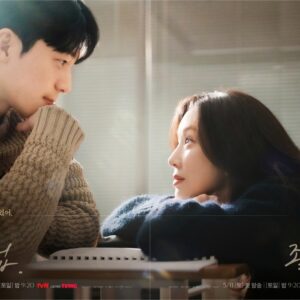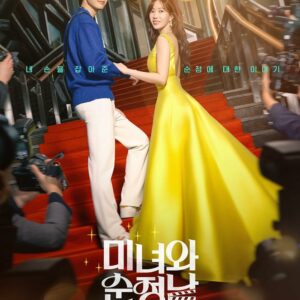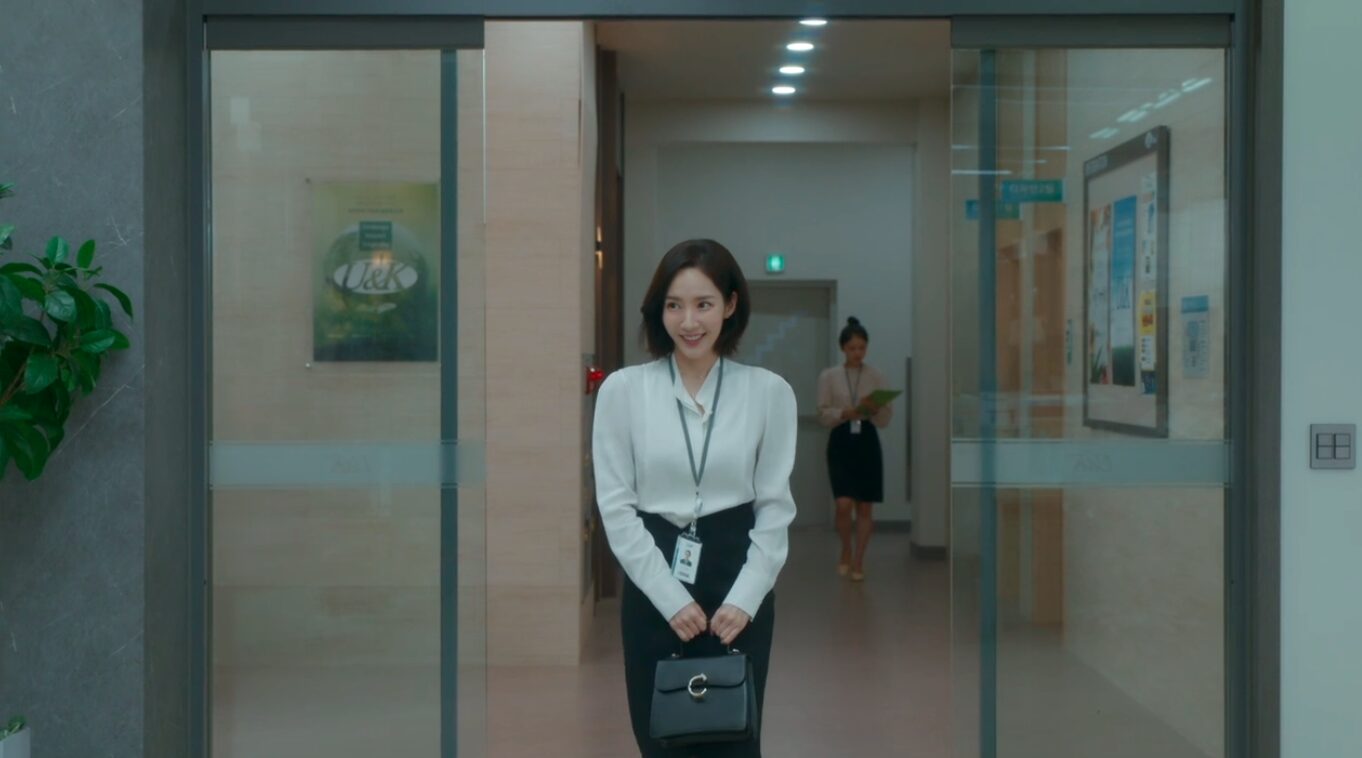Why did I love this year’s time-slip nostalgia drama, Twinkling Watermelon so much? I have no idea. In fact, I don’t have anything particularly profound to say about Twinkling Watermelon. It was just an enjoyable and emotionally-satisfying drama and so far my favourite for this year.
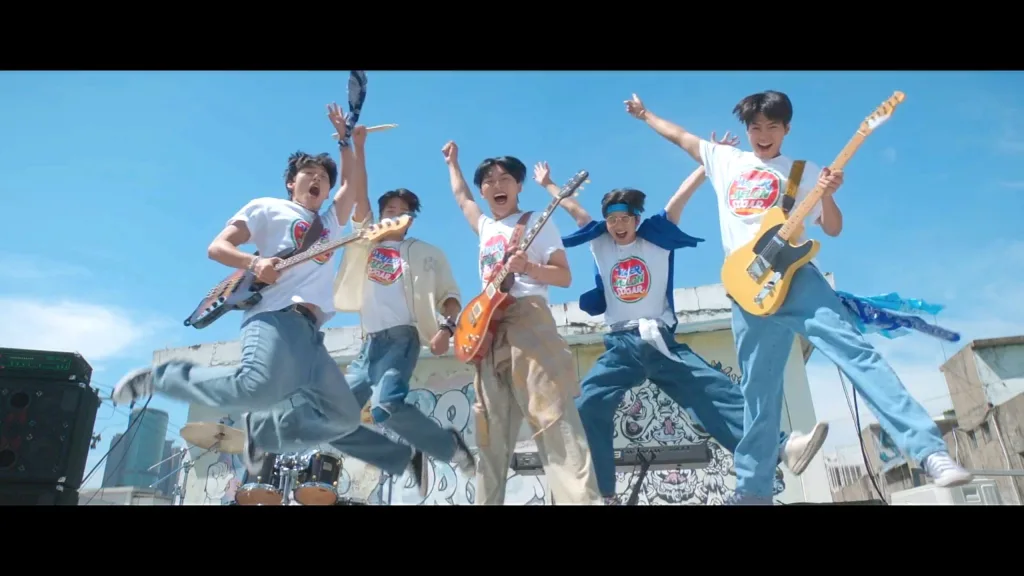
The Plot
Ha Eun-gyeol (Jung Hyun-joon (young)/ Ryeoun (teen)) is the only hearing child of deaf parents. He has devoted his life to being the bridge between his deaf family and the world but secretly loves music and joins a rock band behind his family’s back. After an altercation with his father (Choi Won-young) about the band, he decides to get rid of his precious guitar and finds himself in a mysterious music store. After handing over the instrument, he walks out… 25 years in the past!
It’s now 1995 and he quickly meets his father; a young Ha Yi-chan (Choi Hyun-wook) who can not only hear but is happy, spirited, very vocal and wants to be in a band himself. Yi-chan has a crush on mid-90s “it girl”, Choi Se-kyeong (Seol In-ah) – a cellist from a wealthy family destined for great things – and hasn’t even noticed her shy, reticent, deaf friend, Yoon Cheong-ah (Shin Eun-soo): Eun-gyeol’s future mother.
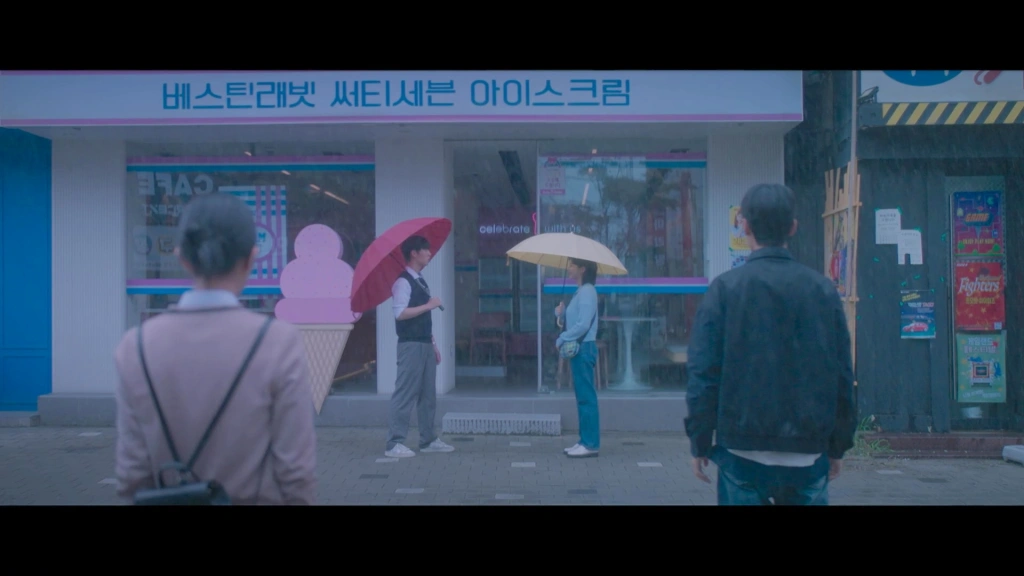
Worried that his father will soon lose his hearing to an accident – and that he may not exist if his father doesn’t notice his mother – Eun-gyeol devotes himself to putting his family together and giving his father a chance to shine.
Viva La Vida is the show’s motto and that’s the vibe the show embodies. Life is here to be lived, but especially when you’re young and bursting with potential. Life will happen eventually. Best to be brave and shine while you can.
The Epic Backstory
Korean dramas are well known for their effective and well-constructed backstories but Twinkling Watermelon possibly has one of the most heart-breaking, emotion-tugging backstories ever. In fact, this setup was so tragic, so emotional and so intensely powerful that it’s the show’s best or worst asset (depending on your perspective).
Watching the young Eun-gyeol grow up both apart of and separate from his two, distinct worlds – the hearing and the non-hearing – and seeing his intelligence, his empathy, his determination and his quiet, burgeoning, isolating belief that he can never fully have a life of his own will gut you. In fact, show will tear your heart out, fillet it and then shove it back into your chest yelling, “Time travel hijinks! Woohoo!” and you may or may not get whiplash from the tonal change.
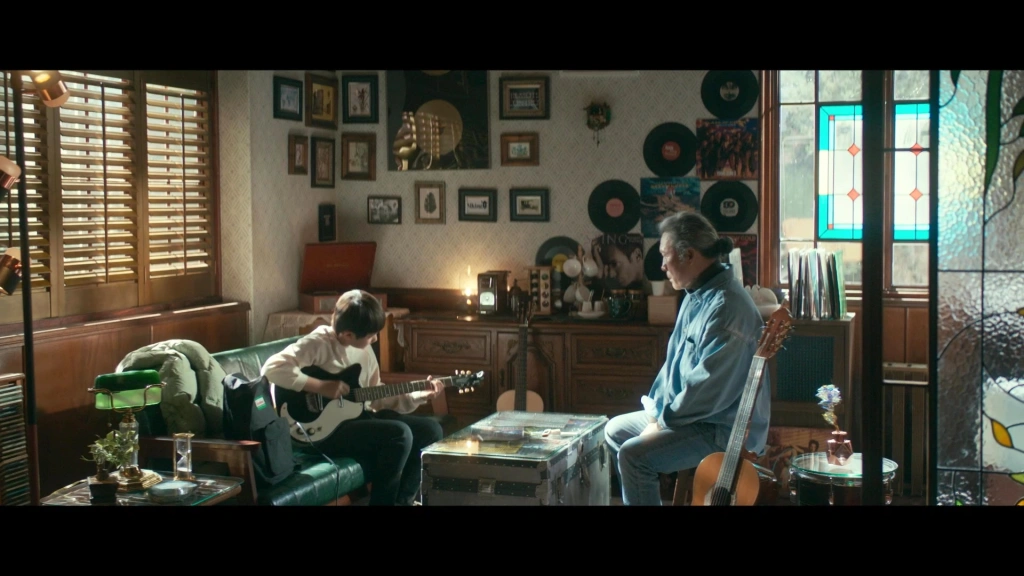
Eun-gyeol lives for his family; being a companion and semi-parent for his older brother, an interpreter for his mother, and a symbol of success for his father. His only respite comes from music lessons with a mysterious music shop owner – who promptly dies. But when the guitar he inherited from his mentor finally makes it into his hands, courtesy of his daughter – Choi Se-kyeong (yes that one) – it’s the spark that finally leads him to try to pursue music. Even if he believes it’s a choice his deaf family is quite literally incapable of understanding.
Eun-gyeol might have some resentment towards his father, but his hard life of responsibility has not made him bitter or angry. Instead, he is intensely caring and strongly motivated by the happiness of others. He’s also capable, hard-working and emotionally strong and uses all these things to uplift those around him.
But Eun-gyeol’s caring for others has come at a cost of his own hopes and dreams. He almost doesn’t know how to go about pursuing what he wants for himself. Learning that he, as a teenager, is allowed desires of his own is one of his most important lessons.
Eun-gyeol is such a genuinely lovely person, with such capacity for both empathy and action, that he quickly won me over – although Jung Hyun-joon’s fantastic performance as the child version of the character definitely helped.
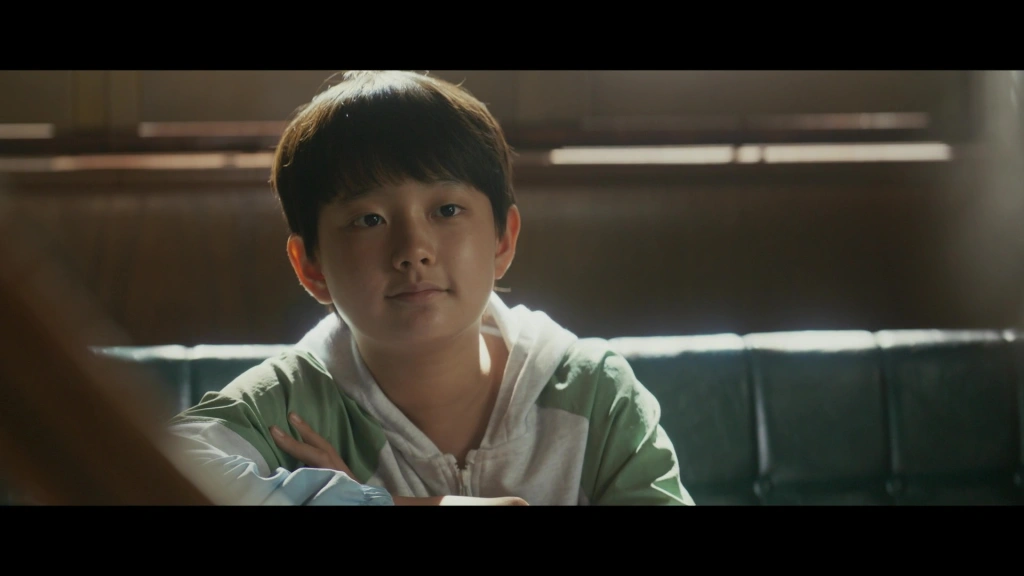

Eun-gyeol’s half-yelled, half-signed altercation with his father finally reveals the rift between the two. And it’s this deeply emotional scene before the time slip that underpins the rest of the drama’s dynamics. Or at least it should have…
The Characters
In a drama landscape increasingly populated by plot-driven dramas with an American feel, Twinkling Watermelon retains classic character-driven storytelling. As such, it feels like a classic kdrama in a way that a lot of this year’s offerings don’t. It has the depth and heart that can only come from character-driven narratives and means that we deeply care what happens to these kids – and to the adults they eventually become.
As far as time slip dramas go, the lack of a coherent time travel mythology therefore doesn’t matter so much. It is, after all, magic fairy dust logic. It’s technically a paradox but nobody cares. As you’ll see later, I have an issue with the ending. But the lack of temporal logic wasn’t the problem. Twinkling Watermelon instead lives and dies by believable, consistent characterisation and strong character arcs.
And yet, to allow the process of discovery necessary to make the drama work, it is told so much from Eun-gyeol’s perspective that it sometimes fails to provide the insight and resolution we needed for other characters (especially for Se-kyeong and her daughter, Eun-yu). In fact, the desire to avoid spoilers limits what I can say about the other characters since Eun-gyeol’s discoveries are generally our discoveries as well.
But Eun-yu and Eun-gyeol share a similar nomenclature for a reason. They have similar parental issues, even though they react to those issues differently. Both teens feel as though they have been living their parents’ lives instead of their own and both need to learn how to live for themselves instead.
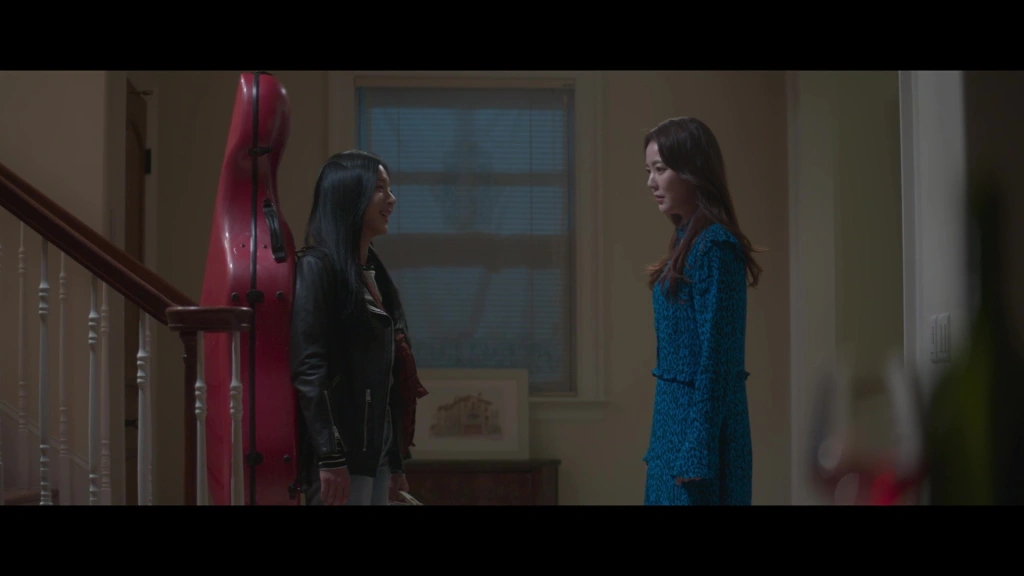
Watermelon Sugar
The young Ha Yi-chan, hearing intact, is a joyfully clueless teenager living with his grandmother in a boarding house. Yi-chan, like all the boys in his neighbourhood, is smitten with icy cellist, Se-kyeong.
One of Yi-chan’s dreams is to start a band, mainly to win over Se-kyeong, whom he mistakenly believes loves rock music (she doesn’t). Eun-gyeol’s presence almost immediately disrupts the timeline but, while he tries to work out why he’s in the past, he decides to help his teenaged father start a band – while trying to disrupt his plans to win over Se-kyeong and push his parents together.
It’s a heady task for the world’s most generous little fixer, complicated only by his growing feelings for Se-kyeong and the subsequent love triangle with his own father. But, while there have been previous attempts to mine this premise – the truly awful and nonsensical 2017 drama, Hit the Top, comes to mind – Twinkling Watermelon is instead underpinned by the sheer joy and energy of youth and the contention that dreams are worth pursuing even if you know they won’t last.
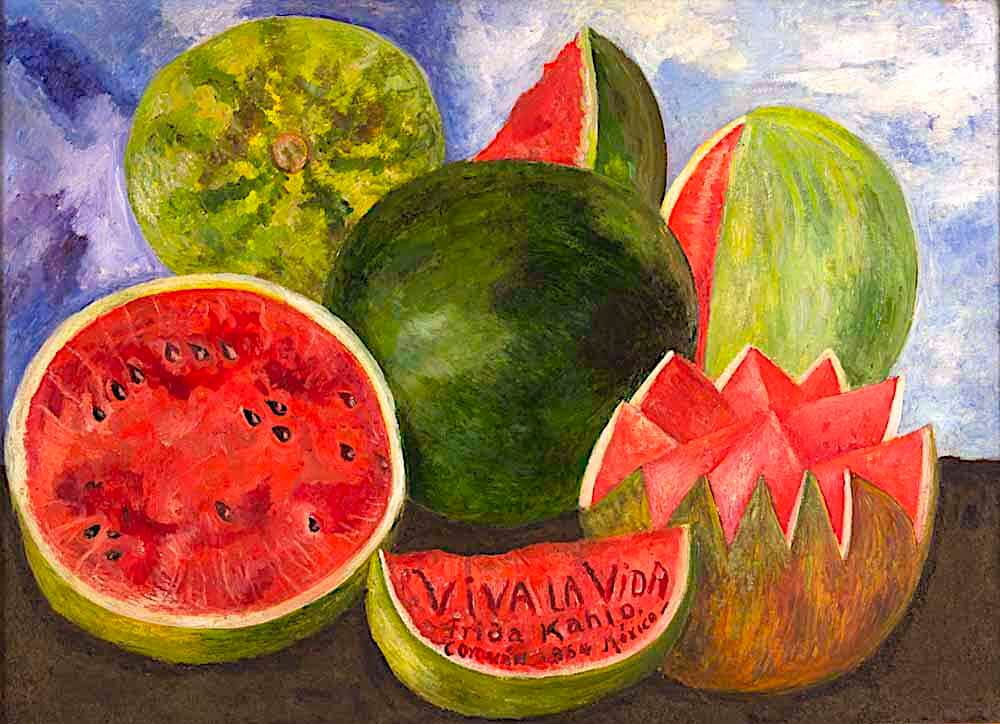
Eun-gyeol wants nothing than for his parents to shine. And the theme is best expressed both in the new band, Watermelon Sugar, and in its name. It’s Eun-gyeol’s teen mother, Cheong-ah, who appropriately inspires the name. Profoundly deaf from birth and growing up in an unhappy and abusive home, she’s also an aspiring artist who loves Frido Kahlo. Snd she proposes using a painting of watermelons called “Viva La Vida” (“Long live life”).
With the sweet watermelon icecreams the band loves and the theme of joy, Yi-chan names the band Watermelon Sugar.

Cameraderie, friendship, love, living life to the fullest. That’s the meaning of Watermelon Sugar. And one of the drama’s best themes as well.
The Romances
Anybody on the internet the last few weeks will know the sweet romance between Yi-chan and his future wife, Cheong-ah. The ‘ship that launched a thousand YouTube videos.
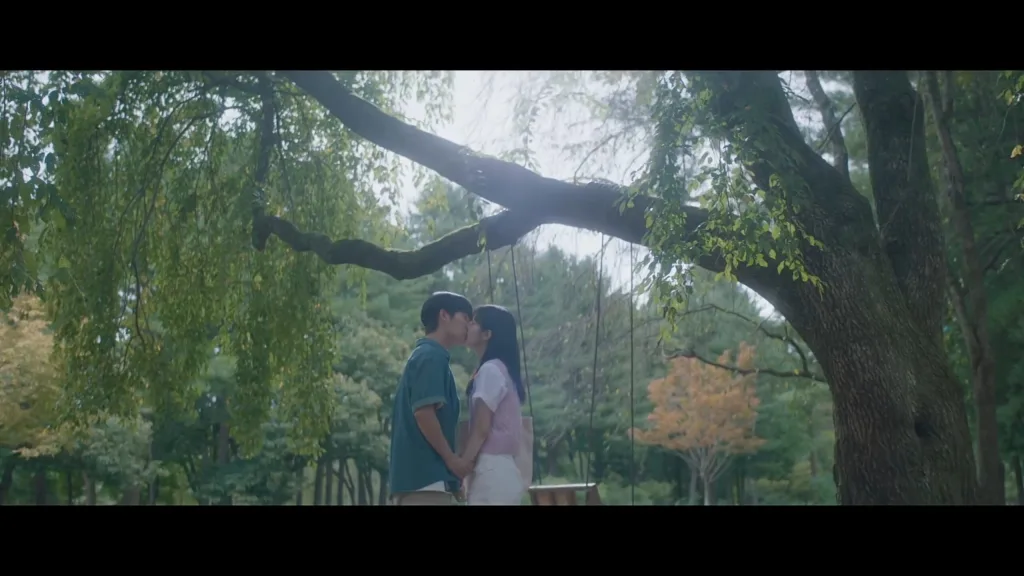
Yi-chan’s development from shallow fan boy in love with a fantasy to a young adult in his first real romance – including learning sign language and being completely emotionally honest without any sense of artiface – is a true delight. And Cheong-ah’s growing self-confidence as she finds her voice and friends to support her is beautiful and heartwarming. It’s no wonder this delightful little romance set the internet ablaze.
But, possibly a minority opinion, it was Eun-gyeol’s discovery of a true partner that underpinned his arc towards putting himself finally first, that won me over. And while spoilers again stop me from being more forthcoming about this particular romance, I loved it as well.
Stuff I didn’t like as much
The conceit of having actors voice the sign language scenes might seem a small thing but it rang a sour note with me from the show’s first episode. While Twinkling Watermelon is a definite improvement in Kdrama’s terrible history of ableism, voicing over the sign language undermines what could be seen as a more positive message. In this, the drama fails to depict what it’s like to truly not be able to hear. Each of these scenes turned the drama from something for deaf Koreans to being something about deaf Koreans for hearing viewers.
Powerful sign language scenes, of which there were several, were undermined by the decision to voice them. I wish the show had committed to having these scenes be silent. In particular, from the perspective of a hearing viewer, Chung-ah’s moments of rebellion against her terrible stepmother would have been much more effective if all I could hear was the slapping of her hands as she finally found her voice – even if that voice isn’t a literal one.
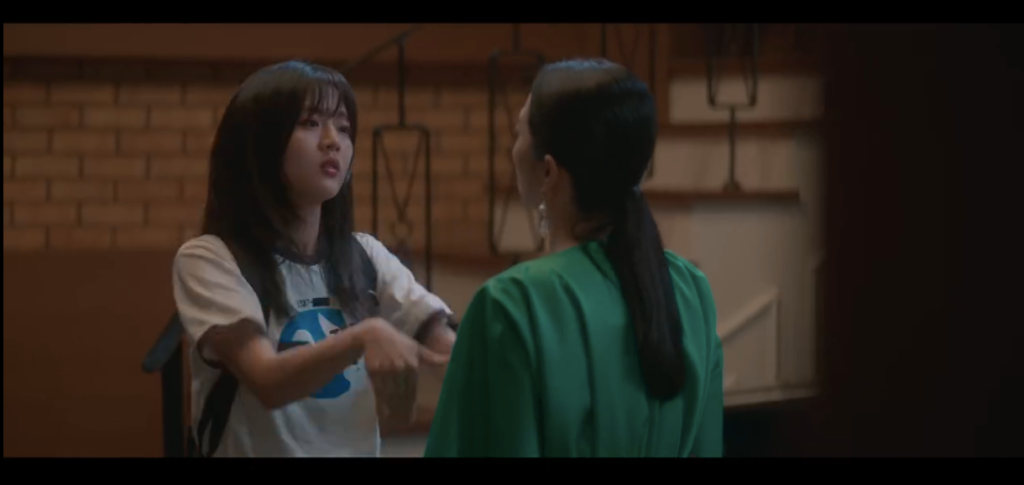
While Twinkling Watermelon is heavily influenced by the discrimination that deaf Koreans often face, adding voices to the signing scenes reinforces rather than challenges this. As diverse as the show is trying to be in its sympathetic portrayal of deaf people, it’s made for the hearing.
The Ending
Despite my best efforts, this is one section that by definition needs to have some spoilers. So stop reading now if you haven’t yet seen this drama.
I’ll preface this section by saying that I enjoyed every minute of Twinkling Watermelon. Or at least every minute of approximately 15 and a half hours. And while I started this post by trying to work out why I loved this show so much – spoiler, it’s the joy of it – the ending is, well, it’s somewhat head scratching.
There are endings that seem to come out of nowhere, not from a plotting perspective but from a thematic perspective. That is Twinkling Watermelon. In particular, I’ve never been a fan of clean slate happy endings where everybody is happy because the conflict has literally evaporated. But that is what we get.
Eun-gyeol comes back to 2023 to find he has literally rewritten all of his family’s previous problems out of existence. And it’s just… so unsatisfying. His conflict with his Dad – irrelevant. His family’s poverty and marginalisation – gone. His need to be his brother’s keeper – we actually don’t know?
One of the show’s strongest messages was that Eun-gyeol needed to live his own life rather than his parents’ but this ending sends a different message. Eun-gyeol really did need to solve all his family’s problems. It’s a head-scratching inversion of what I thought the show was about.

And, even though I said that time travel mythology wasn’t the issue here, the privileged Eun-gyeol created from the changes to the timeline would never have been crying outside the local music store. And so where does that leave his relationship with Se-kyeong’s father that initiated this plot?
In the final episode, the writers seemed committed to a series of fake-outs – all told once again from Eun-gyeol’s perspective – which meant the show didn’t resolve some really important plot points. Eun-yu – I’m going for spoilers now – also felt as though she was living her mother’s life. She was sent back in time, not just to understand the woman who birthed her, but to learn she could forge her own path with her own friends and her own aspirations rather than choosing annihilation.
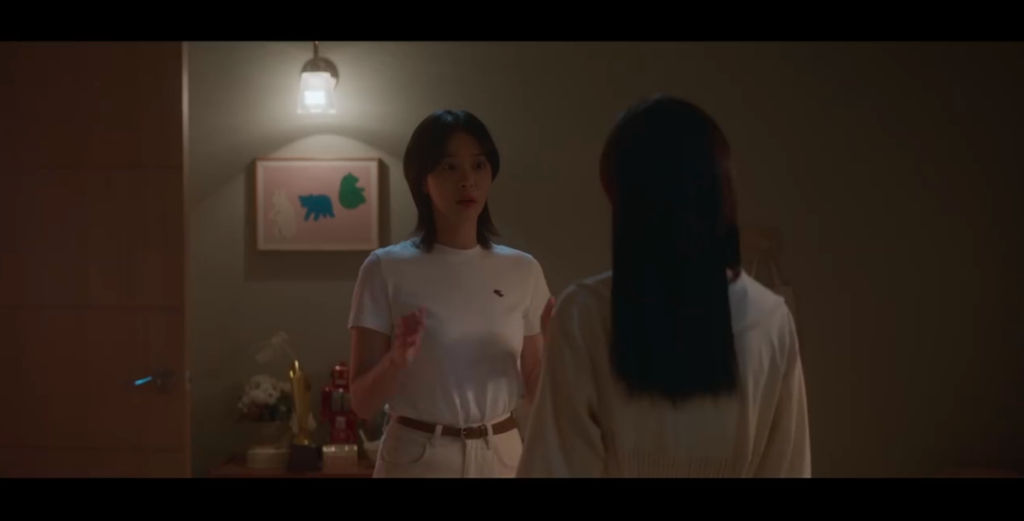
And yet apart from her ending up with Eun-gyeol, we know nothing about her resolution with her parents, her relationship with cello, or whether her parents’ marriage fared better without Se-kyeong’s lifelong insecurities about her adoption.
Of all the characters, Eun-yu’s development most closely mirrors Eun-gyeol’s. But we’re left none the wiser about her life in the new timeline or the changes their time travel wrought.
But overall
I loved Twinkling Watermelon, lacklustre ending and all. And, while it isn’t perfect, I’d say it was my favourite drama this year. And I now know why. It’s the sheer joy of it. Bad things happen in life. In fact, life happens. But that doesn’t preclude joy. As long as we’re brave enough to pursue it.
Twinkling Watermelon is available for streaming in Australia with full English subtitles on Viki
